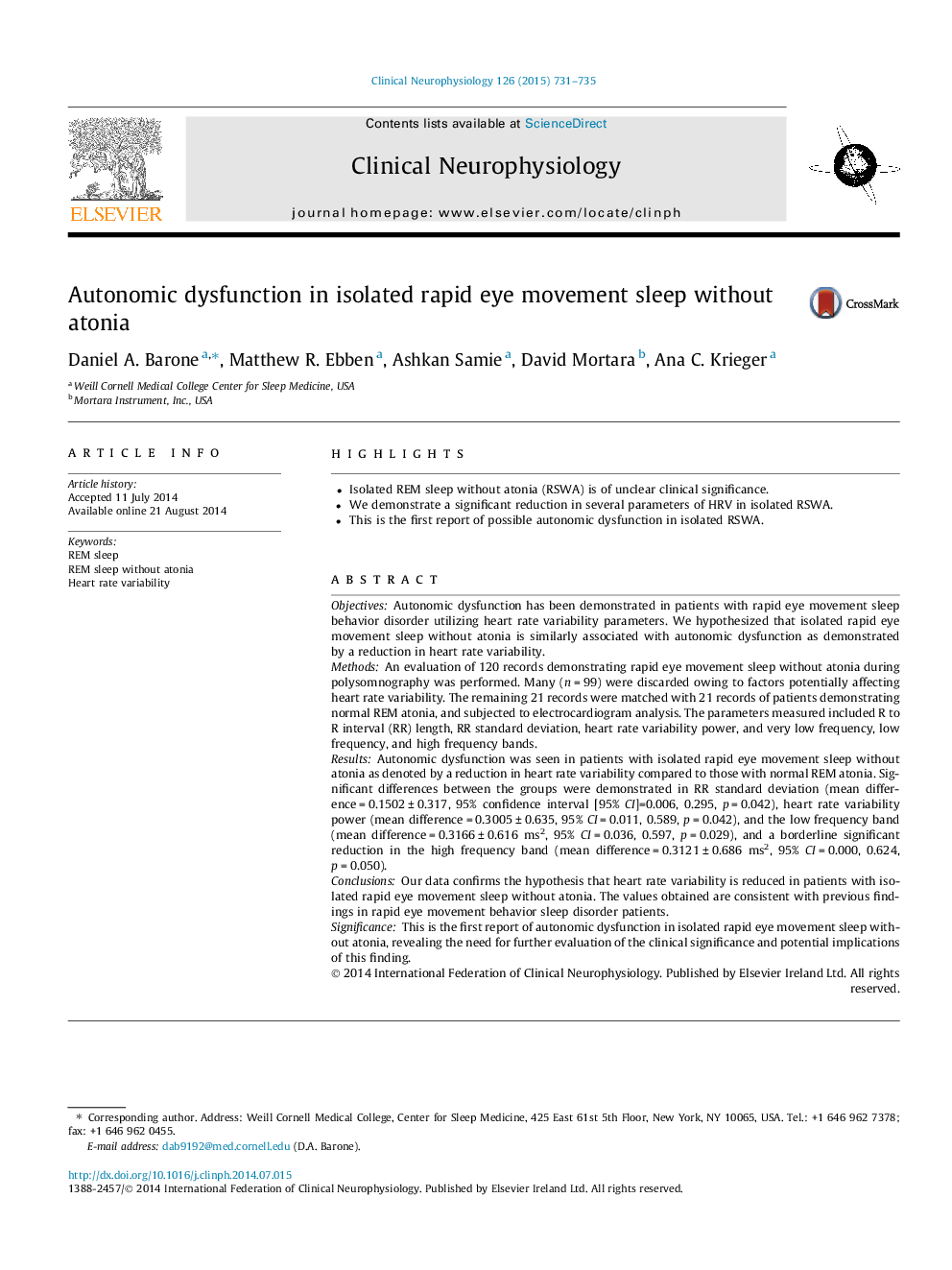| Article ID | Journal | Published Year | Pages | File Type |
|---|---|---|---|---|
| 3043000 | Clinical Neurophysiology | 2015 | 5 Pages |
•Isolated REM sleep without atonia (RSWA) is of unclear clinical significance.•We demonstrate a significant reduction in several parameters of HRV in isolated RSWA.•This is the first report of possible autonomic dysfunction in isolated RSWA.
ObjectivesAutonomic dysfunction has been demonstrated in patients with rapid eye movement sleep behavior disorder utilizing heart rate variability parameters. We hypothesized that isolated rapid eye movement sleep without atonia is similarly associated with autonomic dysfunction as demonstrated by a reduction in heart rate variability.MethodsAn evaluation of 120 records demonstrating rapid eye movement sleep without atonia during polysomnography was performed. Many (n = 99) were discarded owing to factors potentially affecting heart rate variability. The remaining 21 records were matched with 21 records of patients demonstrating normal REM atonia, and subjected to electrocardiogram analysis. The parameters measured included R to R interval (RR) length, RR standard deviation, heart rate variability power, and very low frequency, low frequency, and high frequency bands.ResultsAutonomic dysfunction was seen in patients with isolated rapid eye movement sleep without atonia as denoted by a reduction in heart rate variability compared to those with normal REM atonia. Significant differences between the groups were demonstrated in RR standard deviation (mean difference = 0.1502 ± 0.317, 95% confidence interval [95% CI]=0.006, 0.295, p = 0.042), heart rate variability power (mean difference = 0.3005 ± 0.635, 95% CI = 0.011, 0.589, p = 0.042), and the low frequency band (mean difference = 0.3166 ± 0.616 ms2, 95% CI = 0.036, 0.597, p = 0.029), and a borderline significant reduction in the high frequency band (mean difference = 0.3121 ± 0.686 ms2, 95% CI = 0.000, 0.624, p = 0.050).ConclusionsOur data confirms the hypothesis that heart rate variability is reduced in patients with isolated rapid eye movement sleep without atonia. The values obtained are consistent with previous findings in rapid eye movement behavior sleep disorder patients.SignificanceThis is the first report of autonomic dysfunction in isolated rapid eye movement sleep without atonia, revealing the need for further evaluation of the clinical significance and potential implications of this finding.
